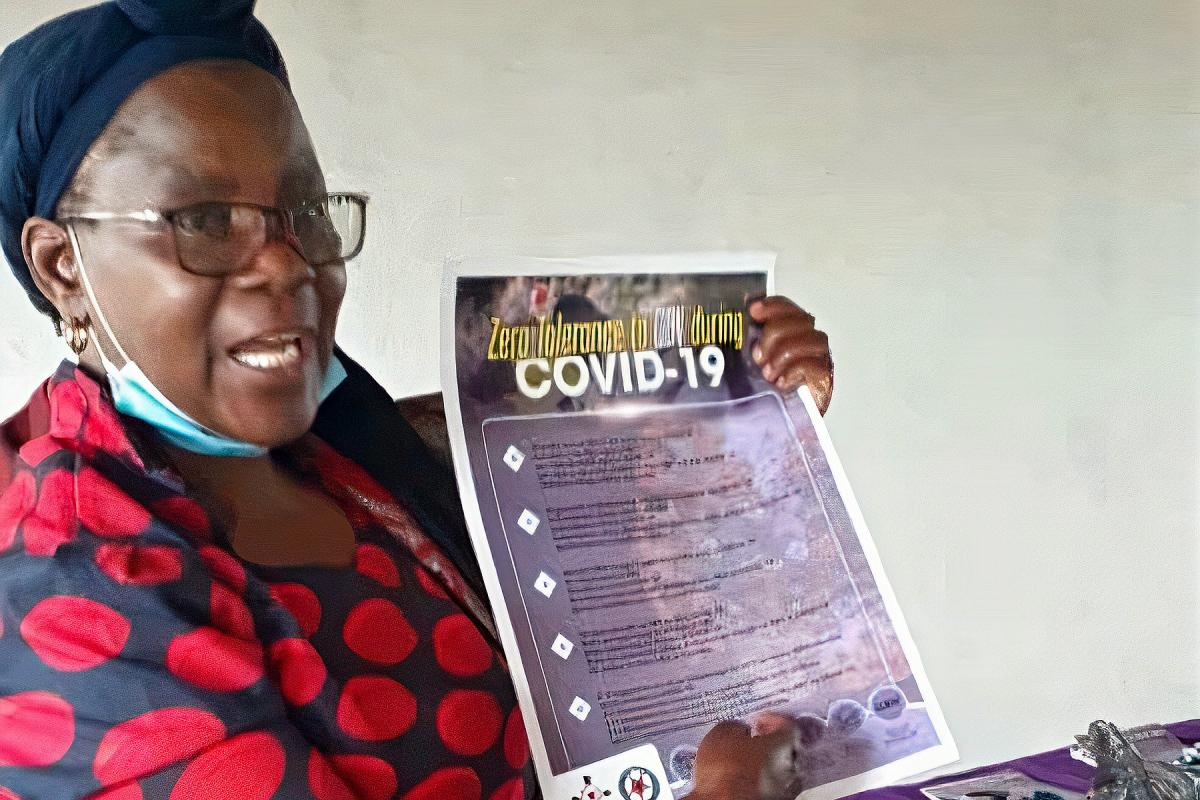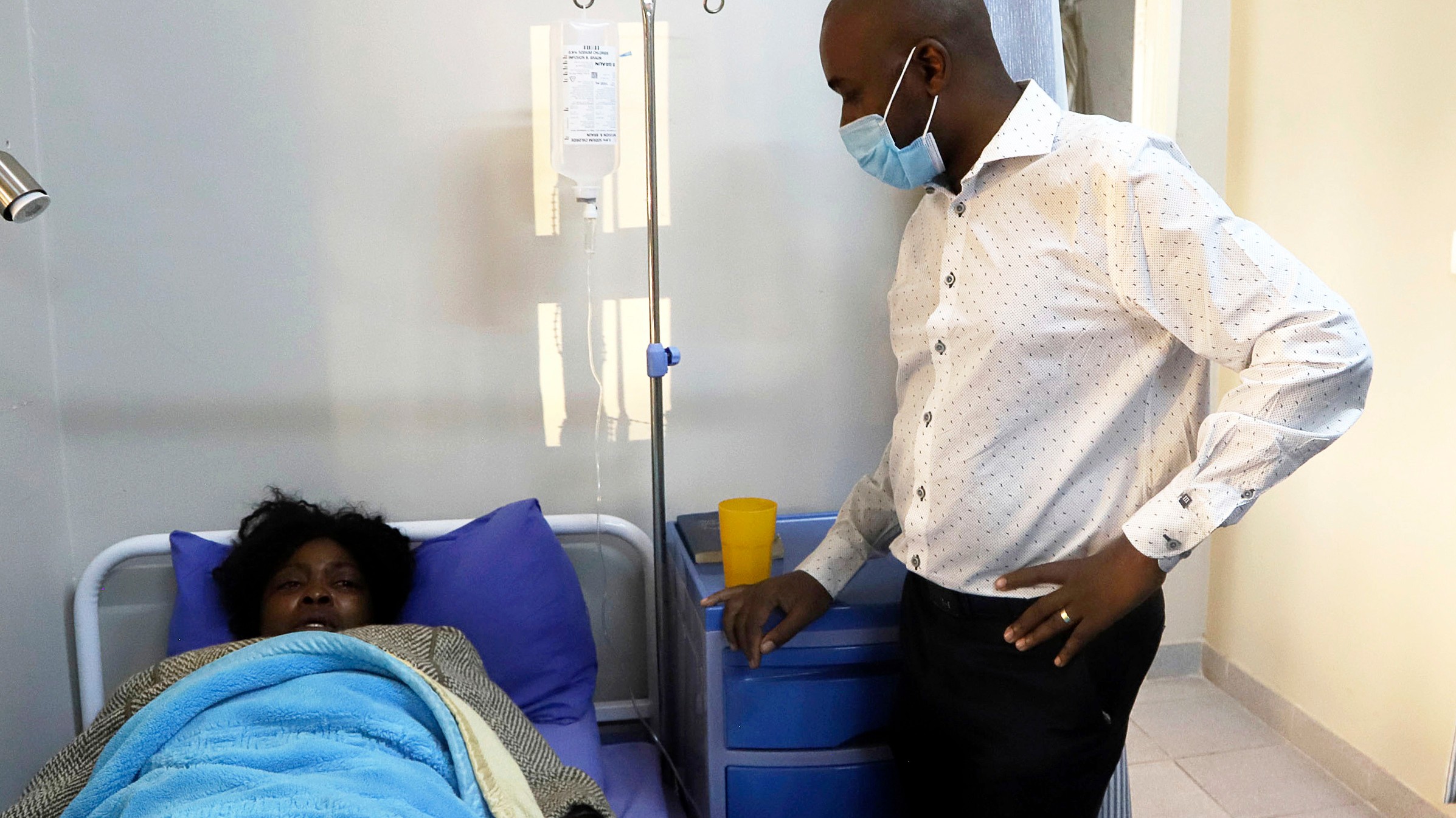Indeed, this is mighty commendable and praiseworthy work on the part of the Christian community, as such is exactly what is expected of a people who are supposed to be representing Jesus Christ, and abiding by God’s teachings and commandments on their role in this world – which is, predominantly, to stand with the afflicted, and speak out for the voiceless.
However, unfortunately, this sudden show of force by the Christian community has rather been found wanting in other respects.
As much as the COVID-19 pandemic is certainly a catastrophic occurence, which requires the loud voice of God’s children to be powerfully and unequivocally heard – Zimbabwe had, nonetheless, already been suffering under a more destructive, heinous, and malicious scourge for the past forty years – which, has iniquitously wrecked millions upon millions of innocent and defenceless Zimbabweans’ lives.
Yet, never has the same unambiguous, forceful, and unyielding outpouring of indignation – as commendably displayed during this COVID-19 period – been expressed by the Christian community.
Why is that so? As a devout Christian myself, I am left profoundly dumbfounded!
Are Christians telling Zimbabweans that God – who we know to be loving, compassionate, and a hater of sin – would only condemn a pandemic that, most assuredly, is wrecking havoc amongst us, especially here in Zimbabwe, but not say a word against a regime that has cold-heartedly butchered over 20,000 innocent men, women, and children (including, unborn babies, who were gouged out from their pregnant mothers’ wombs with bayonets), that has left over 5 million of its own citizens living on the brink of starvation (which, according to the United Nations was largely man-made, due to government incompetence), with millions more reduced to abject poverty (unable to afford even the most basic essentials for their daily sustenance)?
Are Christians saying that the God we so proudly serve is blind and uncaring to the scores more innocent and unarmed people who were mercilessly gunned down by security forces (purportedly, because they were protesting violently), or the hundreds more, who were brutally hacked to death, for supporting the opposition, or those three women (amongst many other political and labour activists) who were recently allegedly abducted, ruthlessly beaten up, atrociously sexually ravaged, and callously abandoned at some road side?
If Christians can be quiet, and pretend that nothing of this sort is happening in this country, then, what image of God are we portraying to the world?
We have already – through this COVID-19 pandemic – shown that our Lord and Savior Jesus Christ is there for us, loves us, cares for us, and protects us from any calamity. So, what is our silence saying when it comes to the other – arguably, more devastating and vicious – scourge tormenting the people of Zimbabwe?
Let us never forget that God Himself in Proverbs 31:8,9 – amongst a whole host of other biblical verses – commands us to: “Open your mouth for the speechless, in the cause of all who are left desolate. Open your mouth…and plead for the cause of the poor and needy”.
God is unambiguously instructing us, as Christians, to OPEN OUR MOUTHS for those who are voiceless, who are oppressed, subjugated, and suppressed. He is commanding us to OPEN OUR MOUTHS for the poor and needy.
Yes, donating food, clothes, blankets, and other necessities to the poor and needy is a very essential part of our caring and loving mission as Christians – but, as far as God is concerned, that is clearly not enough.
We need to STAND UP, and SPEAK OUT against all forms of injustice and evil perpetrated by the powerful upon the weak and defenceless.
That is our mission. Yet, we are found nowhere in that regard.
Are we scared? Do we fear men over God? If so, then we need to seriously and honestly reevaluate our sincerity as Christians.
The Bible itself is full of stories of men and women of God who stood up against the most powerful kings and queens, in rebuking them for their wayward and sinful ways.
Have we forgotten Elisha’s condemnation of King Jehu, or Elijah’s uncompromising stance against King Ahab (and Queen Jezebel), or Isaiah’s brave rebuke of King Hezekiah, or Shemaiah’s words of disapproval against King Rehoboam, or Ahijah’s boldness against King Jeroboam, not forgetting Samuel’s unshaken castigation of King Saul, Nathan’s unflinching words against King David, and even John the Baptist’s denouncement of King Herod?
Indeed, these kings wantonly perverted nearly all of Jehovah’s commandments – including, disobedience to God’s simple instructions, worshipping false gods (idolatry), adultery, and murder.
Yet, the true men and women of God OPENED THEIR MOUTHS and SPOKE OUT against such despicable and unrighteous acts.
Were they not afraid of these kings’ potential murderous reactions? Of course, they were afraid. Very afraid.
In fact, when God sent Samuel to anoint David as the next king, he openly expressed his apprehension at King Saul’s possible anger – yet, Jehovah strengthened him, and he proceeded to bravery carry out his mandate.
John the Baptist was even imprisoned, and subsequently decapitated by King Herod for his bold retribution of his adulterous marriage to Herodius (his own brother’s wife).
Jesus Christ Himself, warned His disciples that they would be persecuted, and put to death for His name’s sake – but, that did not stop them from carrying out their mission with the utmost dedication, zeal, and faithfulness, as they were emboldened by the Holy Spirit, even to the death.
These remarkable men of God did not just limit their activities to praying for their nations, nor did they merely offer words of comfort and encouragement to their kings and people.
No. They acted on God’s commandments for us to OPEN OUR MOUTHS when the more powerful treat the weaker with disdain, oppression, and downright evil.
Yet, here in Zimbabwe – where the ruling establishment is distinctly in violation of every commandment of Jehovah God Almighty – His representatives of are known for their deafening silence.
Which commandment have those in power in Zimbabwe not maliciously violated?
From idolatry and evil worship (as even attested by the late former President Robert Gabriel Mugabe’s deathbed fear, that they would use his corpse for ritualistic purposes to enhance their powers), to killing (as witnessed by the thousands upon thousands who have savagely perished directly at this regime’s hands, or millions more through lack of nutritious meals, or medications, due to the authorities’ gross negligence), committing adultery (who does not know these officials’ promiscuous lifestyles), stealing (through unfettered corruption and looting of national resources), and even bearing false witness (as they incessantly accuse opposition activists of numerous unsubstantiated crimes).
We, as the Zimbabwean Church, are, therefore, not expected to do any less than our forefathers – in confronting, with Holy Spirit boldness and conviction, all those in authority – of course, with the respect that the Bible commands, but with the truth that God demands of us.
For far too long, the Christian Church has bore the uneviable history of being associated with colonization, slavery, and another acts of oppression and subjugation – characterized by allegations that these people came holding the Bible in one hand, whilst brandishing a gun in another – such that, most people across the world have, understandably, always perceived us of being colonial tools.
Nonetheless, this was all the work of Satan the Devil, who obviously sought to tarnish the image of Christianity, as we are supposed to be the exact opposite – mandated to be agents of freedom and emancipation, instead.
The time has now come, that we finally stood up, and spoke out firmly and unequivocally for what God truly sent us to do – for the oppressed, needy and poor, and against all forms of injustice and oppression.
As the Apostle Paul said, it is more fulfilling to die for the sake of Christ, than to die because of sin.
Thus, even all that I write and say, is of God – not of any political party. For even if I am to be killed today or tomorrow, by those I boldly speak against, no opposition political entity can ever truthfully claim that they knew me, nor was I their supporter or member – yet, Christ Jesus Himself will certainly proclaim, “Most assuredly, I knew him, and I sent him to say those things”.
For that, I am proud of.
© Tendai Ruben Mbofana is a Christian social justice activist, writer, author, and speaker. Please feel free to contact him on WhatsApp/Calls: +263733399640 / +263715667700, or Calls Only: +263782283975 / +263788897936, or email: [email protected]
Post published in: Featured






 Kathryn Rubino is a Senior Editor at Above the Law, and host of
Kathryn Rubino is a Senior Editor at Above the Law, and host of 


 Jordan Rothman is a partner of
Jordan Rothman is a partner of 








